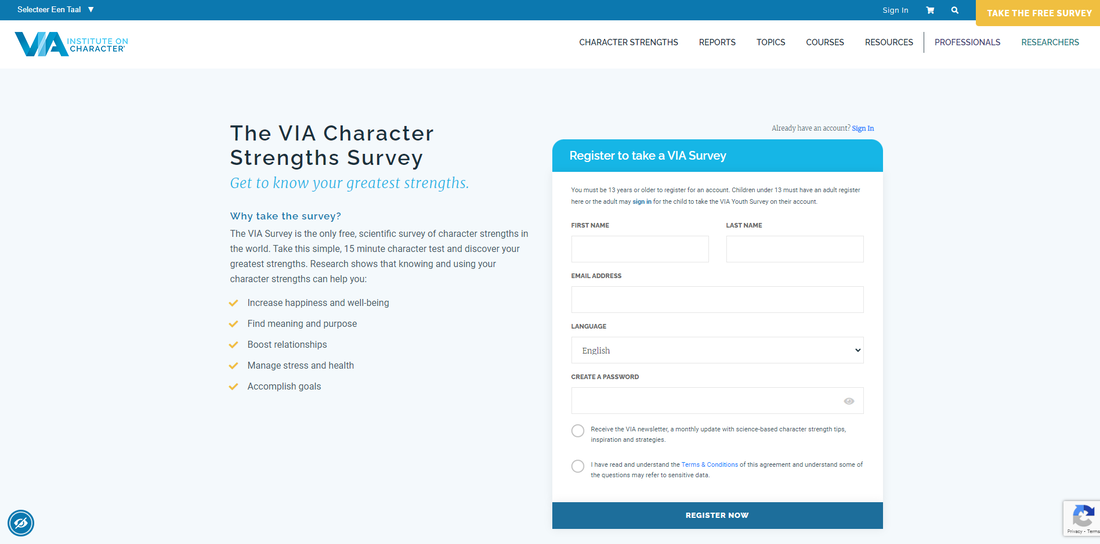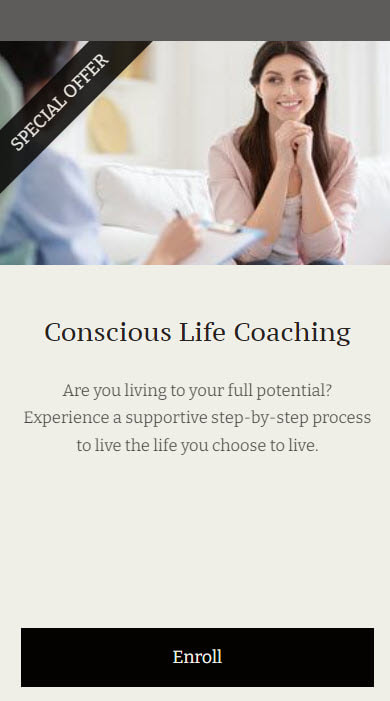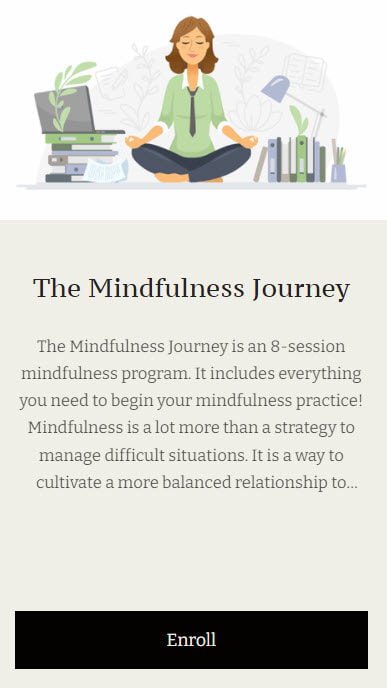|
What is a bucket list and how do you make one for yourself? Explore these bucket list ideas to create your bucket list. A bucket list is a list of experiences one wants to have before they die. Often, a bucket list includes big accomplishments, travel, and fun things we’d like to experience in our lives. Given that engaging in positive activities is good for our well-being (Catalino, Algoe, & Fredrickson, 2014), checking off things on our bucket list may also be good for our well-being. Simple pleasures may be especially beneficial to our well-being since contentment is thought to be central to what it means to live a fulfilling life (Cordaro, Brackett, Glass, & Anderson, 2016). So, let’s get started exploring ideas so you can create your own bucket list. Bucket List IdeasHere are some common things that might go on a bucket list:
For many people, travel is a big part of their bucket list. So here are some ideas that might involve travel.
Is travel not really your jam? Here are some more fun bucket list ideas:
In addition to doing fun things, we may also have some career-related things we want to put on our bucket list. Maybe we want to climb the ranks in our job or make a certain amount of money. Here are some more ideas:
Finally, here are a few more unique things you might want to add to your bucket list:
Final Thoughts on Bucket ListsMaking a bucket list is a fun way to clarify which activities and experiences you think will bring you joy and life satisfaction. As long as you don’t get too caught up in feeling like you have to do them all, this list can help serve as a road map for creating a life you love. References
Learn about theories of personality and discover which personality traits you have. What is personality? Well, the answer depends on who you ask. Personality may be part of our unconscious. It may consist of personal narratives that we build across our lives (Cervone, Shadel, & Jencius, 2001). Or it may be the observable manifestation of our genetics. But overall, personality traits can be thought of as habitual individual differences in behavior, thought, and emotion Theory of PersonalityIt wasn’t until recently that we even knew we had personalities. Still, for a long time, we’ve used adjectives to describe people. For example, we might say someone is responsible, innovative, angry, or friendly. Each of these adjectives can also be thought of as personality traits. Interestingly, when researchers analyzed these common adjectives, they found that they clumped into five categories (Goldberg, 1993). These categories are now known as the Big Five personality traits. And each of these big five aspects of personality includes hundreds if not thousands of personality traits (Goldberg, 1993). The Big Five Are:
Although there are only five primary personality traits, we can fall anywhere on the continuum of these traits. In other words, we are not 100% extrovert or 100% introvert. Rather, we might be mostly extroverted, mostly introverted, or somewhere in the middle. To see where you fall on these Big Five traits, here is a short personality quiz with some of the questions used in research on the Big Five personality traits (Saucier, 1997; ipip.ori.org). Self-Assess Your Big Five Personality TraitsScale: 1 = Strongly Disagree | 10 = Strongly Agree Extraversion
Agreeableness
Conscientiousness
Emotional Stability
Openness to Experience
*Add up your score for each of the five personality factors. The higher your score, the stronger each of these personality traits is for you. Other Theories of PersonalityAlthough the Big Five theory of personality is the most popular, you may also be interested in the social-cognitive theory of personality. This theory states that much of our behavior—what we might consider to be personality—arises as a direct result of social stimuli. While the Big Five theory of personality assumes that personality consists of our essential, unchangeable, innate qualities, the social-cognitive theory of personality argues that personality itself is dynamic and changes because of our circumstances (Cervone, Shadel, & Jencius, 2001). Regardless of where personality comes from, it can be helpful for our understanding of ourselves to know where we fall and what traits we have. References
What is your self-concept and how does it affect well-being? The self-concept is the image we have of our bodies, capabilities, impressions, etc.... (Bailey, 2003). It includes:
Our self-concept also includes an awareness that we are part of categories—categories based on our age, gender, race, etc... Some people theorize the self-concept is like the glue that holds all the pieces of our personality together. And, at its most basic, self-concept is the answer we give when asked the question "Who am I?" Why Does the Self-Concept Matter?Each of us has parts of ourselves that we believe are the most important (Epstein, 1973). For example, an athlete might view their athleticism to be of central importance to their self-concept, even though they also enjoy cooking and are part of a big family. Some have even suggested that the self is arranged hierarchically, with relatively important parts above less important parts. But each of us decides which parts are important to us. As we experience new things and gain additional information from others, the self-concept may determine which new aspects of personality are acceptable. If new parts don't jive with the old parts, they may not be allowed, thus ensuring that our sense of self remains reliable and intact (Epstein, 1973). As we grow older, contradictory evidence may have less of an impact on our self-concept. So, it can become harder to integrate external information, particularly if it disrupts important aspects of the self-concept. How Does Self-Concept Relate to Well-Being?Several aspects of the self-concept also play a role in well-being. These include:
Self-ImageThe terms self-image and self-concept are sometimes used interchangeably, but more often, self-image is defined as how you see yourself. This may be literal, like when looking in the mirror. But it can also involve mental representations of yourself. These may or may not be consistent with what one sees in the mirror. Self-Esteem or Self-WorthSelf-esteem is broadly defined as the extent to which we like or value ourselves. This generally includes evaluating two parts of ourselves (Tafarodi & Swann Jr, 2001).
Ideal SelfThe ideal self is defined as the self we would like to be—our best self. It appears to originate from the ideal selves that our parents hold for us and communicate to us through childhood Zentner & Renaud, 2007). In positive psychology, the ideal self is thought to include three parts (Boyatzis, & Akrivou, 2006).
In SumOur self-concept is an important guiding principle that helps us navigate the world and understand our role in it. Parts of our self-concept may be good or not-so-good for our well-being. That's why learning more about our own self-concept may be beneficial. References
Figure out how you define success so you can more easily get there. Do you sometimes feel like society's definition of success leaves something to be desired? Have you experienced "success" but it hasn't made you happy? Or are you just a bit unsure about what success means to you? Then let’s explore your definition of success. What is Success?Merriam-Webster defines success as a "favorable or desired outcome". But when researchers ask men and women what their definitions of success are, they get a whole range of answers, and those answers change over time. Overall, women define success more in terms of life balance and relationships whereas men focus more on material success (Dyke & Murphy, 2006). But variations in definition can also depend on age, personality, and prior experience. Here are some examples of how others define success:
What Does Success Mean to You?So, what does success mean to you? Ask yourself the following questions to start getting at your answer:
Keep Exploring What Success Means to YouTo keep exploring what success means to you, try out the following exercises: Free-Flow WritingSometimes we get kind of stuck in our heads—I know I do! — and we have a hard time listening to our inner voice. Free-flow writing about success may help clear away the surface-level thoughts and get access to what really matters to us. Set CriteriaTake a moment to think through your dealbreakers—the things that you need in life to feel successful. Now, be careful, because we think of success, we often focus on the things we want and not the things we need. For example, we might want a big house and a nice car but we don’t need them and can feel successful and happy without them. So, see if you can identify your specific criteria for success. Here are some examples that might be helpful:
In SumSuccess means different things to each of us. That’s why taking some time to think about what success means to you can be helpful. That way, you can set goals that help you get where you want to go and make you happy. Reference
Explore a list of values and do some exercises to better understand which values matter most to you. A value can be defined as "an enduring belief upon which a person acts". Values are like attitudes and beliefs in that they have cognitive, emotional, and behavioral parts. But researchers suggest that values are more enduring and long-lasting than either beliefs or attitudes (Limthanakom, Lauffer, Mujtaba, & Murphy Jr, 2008). The Two Types of ValuesThere are thought to be two different types of values: instrumental values and terminal values. Some of us prefer one type of value over the other (Allen, Ng, & Wilson, 2002). But we all have both types of values that guide our lives to some extent. Instrumental ValuesInstrumental values are about desirable ways to act or behave (e.g., honest, responsible, loving). Terminal ValuesTerminal values are about desirable end states (e.g., health, freedom, family security; Gibson, Greenwood, & Murphy Jr, 2009). Why Values MatterOur values have a big influence on how we act. Acting in ways that go against our values doesn’t make us feel great. So, we generally try to be consistent with our values. In fact, shifting our values in small ways can shift our actions. For example, one study showed that priming people with achievement values increased their success at completing a puzzle but made them less helpful to the experimenter. The value of achievement led them to act in ways that seemed likely to support achievement. But another study showed that priming people with a benevolence value decreased their success at the puzzle and increased their helpfulness (Maio, Pakizeh, Cheung, & Rees, 2009). This suggests it can be helpful to get clear on our values. If we know what’s driving us then we’ll better understand why we do the things we do. What are Your Values?There are tons of values to choose from. So how do you know which ones yours are? One way to find out is by ranking them from most important to least important. Start by asking yourself if you hold any of the following values. Then for the values that you do have, rank them from most important to least important. (Feel free to add any values you have that are missing from the list). List of Values
Try to get your list down to your top 3 to 4 values. Also, try to make sure that these values represent different parts of yourself. Act on Your ValuesTo make each of your values actionable, add a verb to it. In other words, describe how you will live each of your values.
References
These questions can help you get a better sense of who you really are. Are you struggling to know yourself? Do you wonder what you are at the core? Might you want to get to know the many different parts of yourself better? In this article, we'll dive into some different areas of research to help you explore the many different parts of yourself—your values, beliefs, goals, emotions, and more. Exploring these different parts of yourself can help you feel more confident and surer of who you are. Who are We, Anyway?When we know who we are, we have a clear self-concept—or a clear image of our material self, intrapersonal self, and interpersonal self (Epstein, 1973). To know our material self means that we know about our body—for example, its size, shape, and appearance. To know our intrapersonal self means that we know our emotions, needs, values, opinions, and other internal processes. And to know our interpersonal self means that we know how others see us. All of these are parts of who we are. The Material SelfExploring our material self is probably the easiest part of knowing who we are. So let's start here. At least that way, you'll be sure you know some things about yourself. You can get to know your material self-better by asking yourself the following questions:
The Intrapersonal SelfWhen we’re trying to get to know ourselves better, we're probably mostly referring to our intrapersonal self—or our internal qualities and experiences. Yet our intrapersonal self may be hardest to understand because there are so many parts to it. For example, our values play a big role in who we think we are—they guide our decision-making, help us to understand the type of life we want to lead, and may determine the social groups that we belong to (Smolicz, 1981). To better understand your values, take a moment to ask yourself which values make you who you are: Values List:
GoalsLike values, goals may also guide us through life and be an important part of our identity. For example, researchers suggest that each of us has ideas or visions of our future self. These visions are of what we might become, what we would like to become, and what we would not like to become (Markus & Nurius, 1986). So, ask yourself, what are your goals? NeedsOur needs are also a part of who we are. According to Maslow's hierarchy of needs, we need to satisfy deficit needs—like food, water, and shelter—before focusing on other needs like love, self-esteem, self-actualization, and selfless pursuits. The needs we are currently focused on likely play a big role in who we are. So, ask yourself, what are your needs? BeliefsBeliefs are another big part of our identity. Our religious beliefs, political beliefs, and other opinions may be at the forefront of who we think we are. We even frequently use the phrase "I am" to refer to our beliefs. For example, maybe I am a Christian, a Democrat, an Atheist, or a Republican. We identify with our beliefs because they make us who we are, determine who we might spend our time with, and affect how we live our lives. So, ask yourself, what are your beliefs? The Interpersonal SelfAn interesting thing is that we tend to view ourselves in ways that are like the way other people view us (Epstein, 1973). Researchers thought this was because we humans, as social creatures, learn a lot about our identity from our interactions with others. To better understand your interpersonal self, it can be helpful to think about some of the more obvious parts of yourself that can be seen by others. You might ask yourself the following questions:
In SumKnowing who we are can help us navigate the world and better understand our role in it. By exploring our values, needs, beliefs, and more, we can better understand the many facets of ourselves and perhaps more easily move in the direction we desire. References
Check out these activities and self-reflection questions to better understand your unique strengths. Strengths can include knowledge, traits, skills, and talents. When we know our strengths, we can more easily see how we are different from others and how others see us. To start finding your strengths, consider asking yourself some of the following questions.
Why It's Good to Know Your Strengths1. It can increase self-awarenessBy spending some time thinking about your strengths and weaknesses, you might get to know new things about yourself. 2. It can help you like yourself moreThinking about our strengths can help us focus more on the positive aspects of ourselves (Proyer, Gander, Wellenzohn, & Ruch, 2015). 3. It can help you boost happinessOne study showed that when people used a personal strength each day for one week, they showed an increase in happiness. That increase in happiness persisted six months later (Seligman, Steen, Park, & Peterson, 2005). Strength Finding Exercises1. Imagine your best possible selfTake a moment now to imagine the best possible version of yourself in the future (Sheldon & Lyubomirsky, 2006). Try to be as specific as possible. Ask yourself, who would you be? What would be your strengths and how would you be using them? Where would you be? What would you be doing? 2. Reflect on your strengthsOnce you know some of your strengths, reflect on how these strengths affect your life. What are the positive impacts of these strengths on your life? And how do your strengths benefit others? Think through what it means to have these strengths. 3. Build your strengthsIt’s not a bad idea to work on our weaknesses, but we can also work on our strengths to turn them into “super strengths”. So, think about how you could get even better at one of your strengths. Might you practice using your strength more often? Might you seek out feedback from others on how to improve this strength? Or might you use this strength in new situations? 4. Take the VIA Character Strengths SurveyReferences
Learn about the science of journaling and how to use it to improve your life. We may have the assumption that all journaling is good for us, but the last few decades of research have shown us that the extent to which journaling—or expressive writing—is good for us depends a lot on what, exactly, we write about. One of the most common journaling techniques is freewriting (or free-flow writing). Freewriting involves writing whatever comes to our mind by just letting the thoughts come and putting them onto the page without any filters or concern about grammar, spelling, or storyline. This may include both conscious thoughts and other thoughts that bubble up from the unconscious. Writing about emotional experiences tends to result in improvements in mental and physical health. More specifically, these benefits can come from 15-30 minutes of daily journaling for 3-5 days (Pennebaker, 1997). That's it. That means that daily journaling for just one week can result in some benefits. The reason why expressive writing works appears to be because inhibiting our thoughts and emotions is bad for our health. By disclosing the things, we haven't told anyone, we help release that burden of keeping it all inside ourselves (Pennebaker, 1997). And because a journal is private, we can freely and comfortably share thoughts and feelings that we might not feel comfortable sharing with others. InstructionsTo try a science-based approach to journaling, use these instructions: Write about your very deepest thoughts and feelings about an important issue that has affected your life. You might tie your experience to your relationships, past experiences, or anything else that seems relevant. Try to write daily for 5 days in a row or weekly for 1 month—both approaches appear to be effective (Pennebaker, 1997). More Journaling IdeasIn addition to Pennebaker's research on expressive writing, a variety of other journaling approaches have been studied. These other journaling approaches may be a bit easier and more approachable for most of us. Let's talk about some of them now. Gratitude journalingIn a gratitude journal, we aim to cultivate appreciative feelings (Kaczmarek et al., 2015). So, we might write about experiences we're grateful for, create gratitude lists, or even paste in pictures of things to create a sort of gratitude collage. Reflective journalingReflective journaling is thought to aid experiential learning—or learning from our real-life experiences. You might start by first reflecting on the details of an experience. Then, aim to interpret the event to try to understand what happened and find meaning or value in it (Hubbs & Brand, 2005). Health journalingSome studies have looked at the impact of journaling on current health issues like cancer. Like other forms of expressive writing about emotional experiences, this type of journaling appears to result in reductions in mental health issues like depression and anxiety for those with health issues. Specifically, it appears that writing about negative emotions is largely responsible for these positive impacts (Smith, Anderson‐Hanley, Langrock, & Compas, 2005). Goal journalingAnother popular form of journaling is goal journaling. This may involve less freewriting and may be more structured to help you set goals, plan, and track activities. Given goal-setting research supports all these types of goal reflections, this type of journaling can indeed be beneficial and help you reach your goals. References
Not sure what you want? Here are some important questions you can ask yourself. "What do I want to do with my life?" is a question we all ask ourselves at some point. We wonder: What career do we want? How do we want to spend our time? What really leads to a life worth living? The answer to what we want to do with our lives depends on a number of things. So, let's talk about some of the questions you might ask yourself to find your answer. 1. What Makes You Happy?We all want happiness. We want to experience positive emotions and eudaimonia—or meaning in life. So, when it comes to figuring out what we really want in life, we might first ask ourselves what makes us happy. For example, what do we like to do? When are we the happiest? Who are we with when we are the happiest? What goals bring a smile to our faces? Now, what kind of life would help you do these things and feel this way more often? 2. What are your Needs?Next, it can be helpful to ask ourselves which needs are most important to us right now. Now, be careful not to confuse needs with wants. We might want a million dollars, while we might need financial security. We might want the perfect partner, but we might need a partner who loves us and treats us well. According to Maslow's hierarchy of needs, social/love needs, and self-esteem needs are of higher priority than self-actualization—or living up to our full potential. Other needs—like competence, autonomy, and relatedness—are also thought to be keys to well-being and living a good life (Reis et al., 2000). 3. What are your Values?Values serve as guiding principles that help us move forward in ways that matter to us (Roccas, Sagiv, Schwartz, & Knafo, 2002). So, reflecting on our values can help move us in the right direction. We might value social connection, and that helps us see that what we want in life involves being around others. Or we might value kindness, and that shows that what we want in life may be a career helping others. By reflecting on your core values, you can better understand what you want. 4. What activities do you get absorbed in?You know that feeling when you are so absorbed in your work or activities that you lose track of time? That feeling is referred to as flow—or the positive feeling of being totally connected to our performance (Jackson & Marsh, 1996). Flow occurs when we're doing things, we really love that are just the right fit for our skill level. So, what are the activities you get super absorbed in? Knowing the answer to this question can give you clues about what you want in life. 5. What would you do if you could do anything in life?I don't like to get people's hopes and expectations up too much—the truth is we won't be able to reach every wildest dream we might think up. But on the flip side, we often place limits on our own potential that don't need to be there. So, taking the time to at least acknowledge what you really want can help you think about ways to move in that general direction. 6. What is the gestalt of your life?Gestalt is German for "pattern," "shape," or "configuration." In psychology, gestalt refers to the idea of a sort of picture—the different parts produce a whole. In life, we often focus a lot on the little things we might want to change—the job, the house, the car—without focusing as much on the overall picture of our lives. So, when thinking about what we want in life, we may benefit from taking a step back. So, ask yourself, what kind of life do you want to lead? What kind of feelings does this life have? How will the pieces fit together? What does it look like when you look at it from the outside? Asking these questions can hopefully help you understand more about what you want in life. References
|
AuthorPamela (Pami) Parker currently serves as a holistic practitioner, coach and teacher. Her intention is to be a compassionate guide to those who choose to experience a healthier, happier and more peaceful way of life. Categories
All
|
Company Details
The Self-Care Cafe is a member of The Conscious Center
Dutch Chamber of Commerce (KvK) Registration #64532593
Taxation (VAT) Number: NL670496157B01
Privacy Policy
The Self-Care Cafe is a member of The Conscious Center
Dutch Chamber of Commerce (KvK) Registration #64532593
Taxation (VAT) Number: NL670496157B01
Privacy Policy












